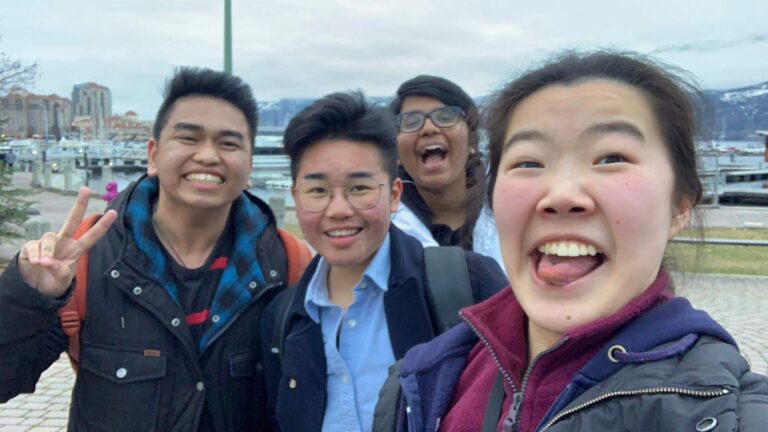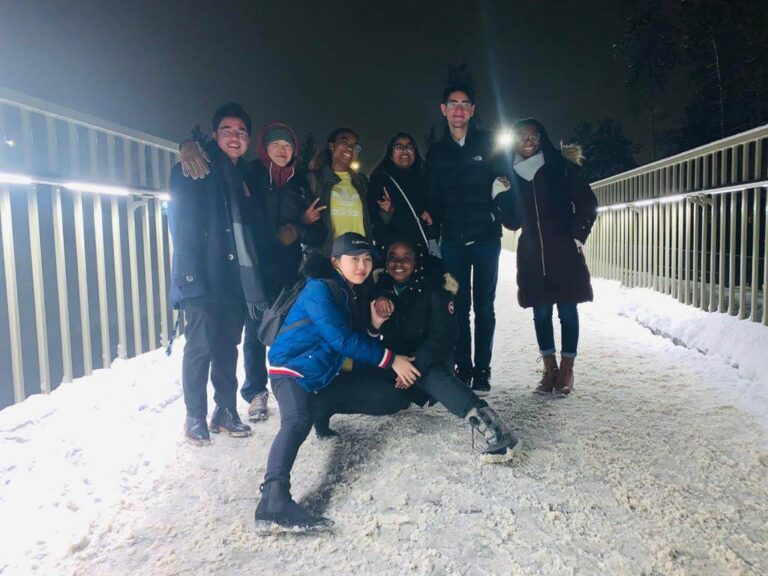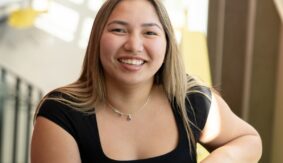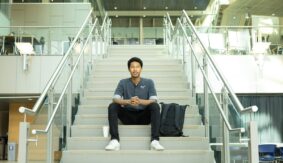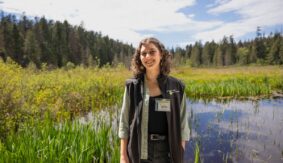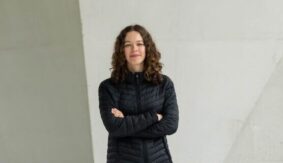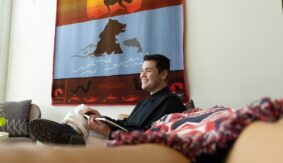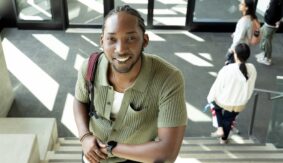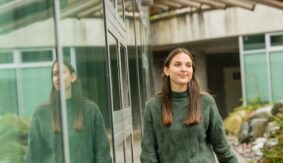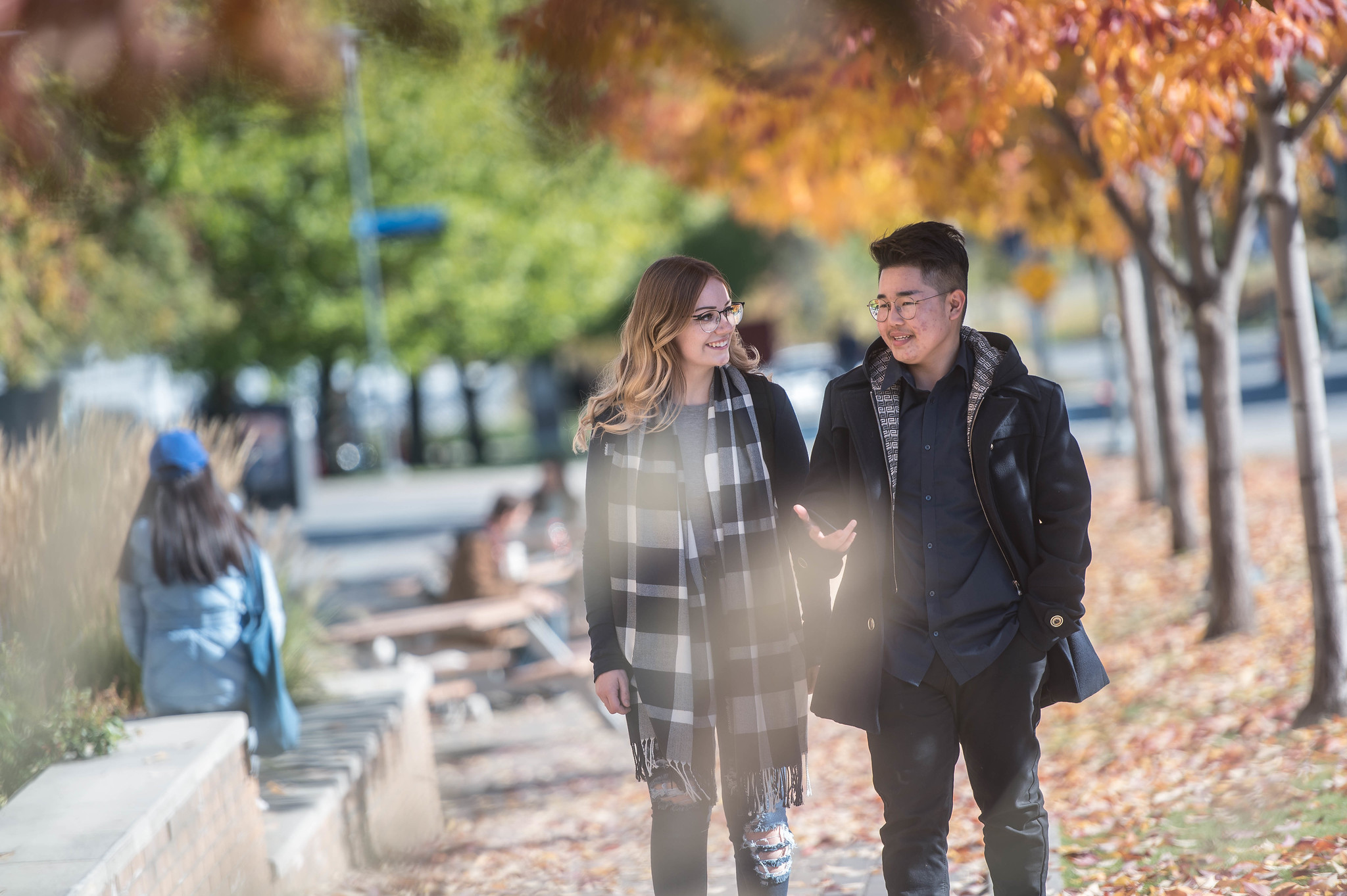
Jimmy began his UBC journey on the Okanagan campus before transferring to Vancouver in his second year.
Across both campuses, Jimmy has been a member of a number of diverse clubs and societies that have helped him build his community. An expert on the best things to do at both UBC Okanagan and UBC Vancouver – he especially enjoys Big White mountain outside of Kelowna and Vancouver’s Wreck Beach – he balances his Psychology degree with the spirit of UBC: getting involved, and making your university experience your own.
Why did you choose UBC?
UBC has a renowned Psychology program with well-respected professors and labs, and world-famous psychological publications. I had the privilege of spending my first year on the Okanagan campus, which immediately gave me a sense of belonging in its tight-knit community, and then I transferred to the Vancouver campus. UBC has offered so much during my undergraduate experience. Although we had to shift to online learning during the COVID-19 pandemic, UBC staff and professors endlessly dedicated their time to ensure that every student did not experience any more emotional burdens while being stressed about the pandemic and other worldwide issues.
How did the UBC community make you feel welcome?
UBC values the diverse and multicultural backgrounds of each student. Because of this, I never felt left out. It makes me feel like I am an essential piece of a jigsaw, and that the UBC community needs me to make it strong, and to make it UBC.
Do you belong to any teams, groups or clubs? How have they contributed to your experience at UBC?
I belong to the UBC table tennis club; Intersectional Perspectives in Psychology Journals club; UBC Thai Aiyara club; the Pride Collective; UBC Psychology Students’ Association; and Gender, Race, Sexuality, and Social Justice Undergraduates Association. These clubs opened up so many doors for me to meet people who express strong passions on the same topic as me. They also gave me a strong sense of belonging through various social events. Even though this year was completely online due to the global COVID-19 pandemic, I still managed to meet many other incredible and passionate students.
During your time at UBC, you were a transgender mentor. Can you talk a bit more about that experience?
Even though I was only a mentor for a short time, I had the great privilege of meeting other unique and amazing human beings. This program aims to connect transgender students at UBC and create a sense of community to improve support systems, as many of us have different lived experiences and go through different stages of life on top of our schoolwork, which can be overwhelming and stressful. The mentor-mentee relationship is here so we can help each other.
What motivated you to take on that role?
Back when I did not know any other transgender people in my life, I had nobody to fully open up to about my experiences as a trans person of colour in the Eurocentric cis-heteronormative society, and had no idea about medical resources and social supports for transgender people. I was alone, and it was lonely and depressing. I don’t want anyone to go through it as I did. I don’t want anyone to feel like they cannot do something because they are trans – for example, being a transgender person of colour in the academic world. Having social support like a mentor who has shared similar lived experiences was something that I wish I had when I came out. The reason why I became a UBC transgender mentor was solely based on my “I-don’t-want-anyone-to-experience-what-I-experienced.”
What supports and services have you experienced during your time at UBC?
My academic advisor was the first person to offer me academic support during my first year at UBC, because starting university after high school was scary – especially as an international student. My advisor makes sure to listen and plan with me to ensure that my experience at UBC goes as smoothly as possible.
The second support service that I sought out was mental health support. Sometimes – for an international student like myself, or any other domestic student who is far away from home for the first time – you may experience homesickness on top of school-related stress. UBC mental health support provides professional counsellors who are there and help you get through the uneasy experiences. Also, your professors are really understanding and prioritize students’ mental health.
When you’re not studying, what’s your favourite thing to do on campus and in Vancouver?
I love going to the UBC rose garden, especially during springtime, and having dinner there as I enjoy the view. Also, I enjoy going to the beach in Kitsilano or Wreck beach at UBC, and walking around there. Back when I was in Kelowna at UBC Okanagan, Big White was the highlight that every student should experience at least once, for either skiing or hiking or mountain biking.
What would you say to prospective students who are considering attending UBC?
UBC’s motto is “Tuum Est,” which means “it’s yours.” It is your journey and your story. It’s up to you how you would like to colour your story, but UBC will be the place to support and help you grow. There are numerous opportunities on this massive campus for you to grab. Join clubs to meet people who share similar interests as you. Talk to your professors about your research interests. Expand your resume by shooting your shot at becoming a club executive or by volunteering. Make sure you take advantage of these exciting opportunities and make your YOU-BC journey unforgettable.
